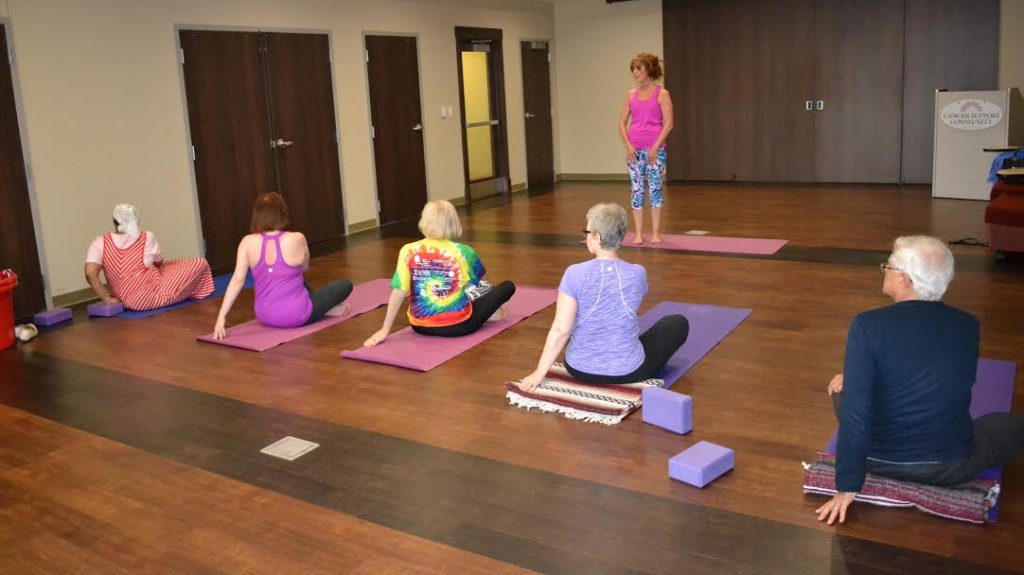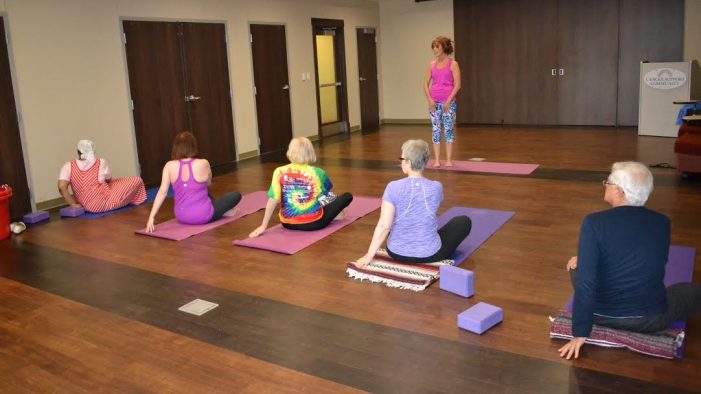
Rockwall, TX (August 29, 2023) – After more than 9 million missed cancer screenings during the pandemic, research by the Epic Research journal now shows that screenings across the U.S. and DFW are trending towards pre-pandemic levels. Additionally, Cancer Support Community North Texas (CSCNT), the leading social and emotional cancer support nonprofit serving Rockwall and all of DFW, has seen a simultaneous increase in new patient orientations and a desire for in-person programming.
After several nationwide efforts to increase routine screenings post-pandemic, including the Return-to-Screening Collaborative campaign involving more than 1,400 nationally certified cancer hospitals and The White House’s #GetScreened initiative, the Epic Research study reports that rates of cancer screening for breast cancer, cervical cancer, and colon cancer are believed to have returned to normal. The Epic study included 786 nationally accredited cancer programs and hospitals from across the U.S. – one of which was Texas Health Hospital Dallas.
According to Joyce Lee, MSN, RN, NEA-BC, OCN and Nurse Manager in the Texas Health Dallas Oncology Program, the Return-to-Screening initiative, in particular, which took place from June 1, 2021 through Nov. 30, 2021, proved effective in driving screenings in DFW. Their screening results were as follows:
- Lung cancer:
- 17% increase in lung screenings during the study period
- 83% increase in lung screenings in 2021 vs. 2020 (exceeded pre-pandemic rates)
- Breast cancer:
- 8% increase in breast screenings during the study period
- 11% increase in breast screenings in 2021 vs. 2020 (not yet at pre-pandemic rates)
Also in DFW, Cancer Support Community North Texas saw a notable increase in mental health support interest and participation since 2022. New participant (cancer patients/caregivers) orientations increased by more than 50% from Q1 2022 to Q1 2023, as did adult/family counseling sessions during that same time.
Additionally, a 2023 survey of more than 200 CSCNT emotional/social cancer support participants revealed other upward-trending findings, including:
- An increase in younger participants (35-44) – from 3% in 2020 to 11% in 2023
- An increase in Hispanic participants – from 20 to 60 active participants (66% increase)
- A desire for more in-person programming – only 37% of people want some virtual programming down from 69% in 2020
- An increase in physicians referring cancer patients to CSCNT by nearly 15% since 2020
- An increase in people attributing “their hopefulness about their future” to CSCNT – from 71% in 2020 to 80% in 2023
As one of the largest Cancer Support Community affiliates in the country (there are 176 across the U.S.), CEO Mirchelle Louis says “For people with cancer, the pandemic was doubly hard – the isolation, the fear of the disease on top of cancer, the lack of in-person emotional and social support. Now, we’re not only seeing past participants return in person, but so many new faces craving the help we provide – the non-medical part of the cancer journey and support for the emotional rollercoaster that is cancer.”
Louis adds that her organization has made – and will continue to make – significant changes that reflect participant feedback post-pandemic, including a completely new, user-friendly website (www.cancersupporttexas.org) and possible new programming – from an all-men’s support group to advanced exercise classes to more social events that allow for participants to connect with their “CSCNT family.”
“We have an ever-growing, loyal base of people who rely on us across all three of our clubhouses in DFW,” adds Louis. “Our goal is to ensure that base continues to grow – that anyone in need of support walks through our red doors.”
CSCNT Collin County participant Sheila Broadus, a 56-year-old tennis pro diagnosed with breast cancer in 2018, is one such dedicated participant. “My cancer screening saved my life – they found a lump in my breast and removed it through a lumpectomy. A year into treatment, I found Cancer Support Community and it changed everything again. Once you have cancer, you will forever have a new normal – it’s scary, your life has changed so much. They supported me and helped me adjust in ways my family and friends couldn’t. Every cancer patient needs them.”
Submitted press release





